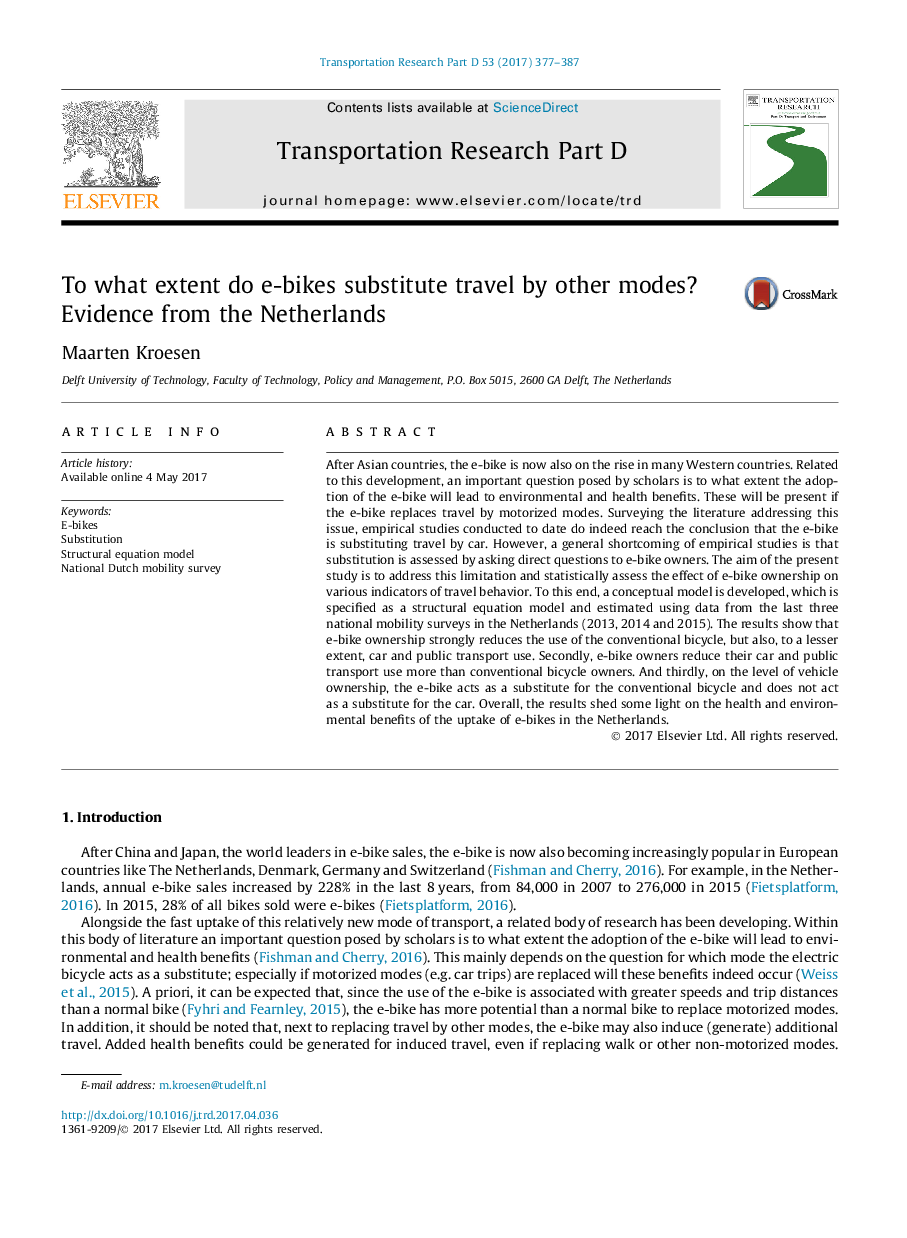| کد مقاله | کد نشریه | سال انتشار | مقاله انگلیسی | نسخه تمام متن |
|---|---|---|---|---|
| 5119438 | 1485871 | 2017 | 11 صفحه PDF | دانلود رایگان |
- E-bike ownership in the Netherlands strongly reduces conventional bicycle use, but also car and public transport use.
- E-bike ownership is negatively associated conventional bicycle ownership, but not with car ownership.
- Car owners are more willing to use the e-bike as an alternative compared to the conventional bicycle or public transport.
- E-bike ownership has a generative effect on the total distance travelled.
After Asian countries, the e-bike is now also on the rise in many Western countries. Related to this development, an important question posed by scholars is to what extent the adoption of the e-bike will lead to environmental and health benefits. These will be present if the e-bike replaces travel by motorized modes. Surveying the literature addressing this issue, empirical studies conducted to date do indeed reach the conclusion that the e-bike is substituting travel by car. However, a general shortcoming of empirical studies is that substitution is assessed by asking direct questions to e-bike owners. The aim of the present study is to address this limitation and statistically assess the effect of e-bike ownership on various indicators of travel behavior. To this end, a conceptual model is developed, which is specified as a structural equation model and estimated using data from the last three national mobility surveys in the Netherlands (2013, 2014 and 2015). The results show that e-bike ownership strongly reduces the use of the conventional bicycle, but also, to a lesser extent, car and public transport use. Secondly, e-bike owners reduce their car and public transport use more than conventional bicycle owners. And thirdly, on the level of vehicle ownership, the e-bike acts as a substitute for the conventional bicycle and does not act as a substitute for the car. Overall, the results shed some light on the health and environmental benefits of the uptake of e-bikes in the Netherlands.
Journal: Transportation Research Part D: Transport and Environment - Volume 53, June 2017, Pages 377-387
